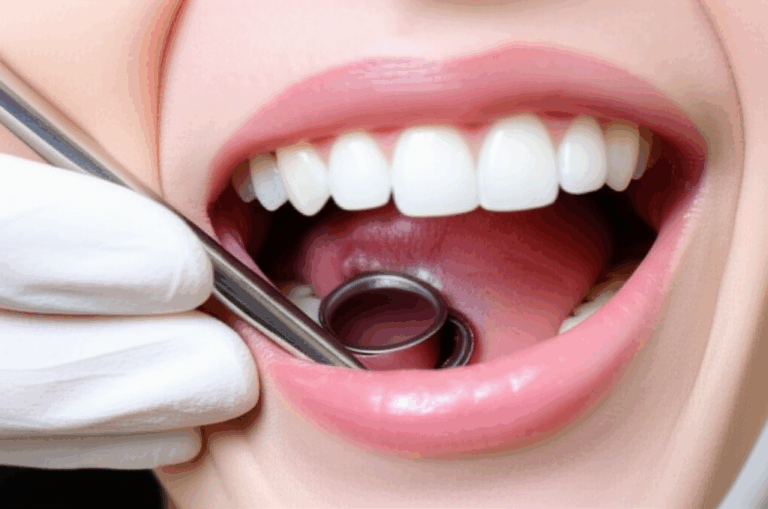
Can a Dentist Cancel an Appointment? Your Rights, Common Reasons, and What To Do Next
We’ve all been there—the calendar ping goes off, your day is planned around the dentist, and then, out of nowhere, the dental office calls to cancel. Frustrating, and you might think, “Wait… can they do that?”
First, try to stay calm. Dentists do sometimes cancel, and usually for a real reason. But it’s still a hassle, so if you’re wondering what’s allowed, why cancellations happen, and how to deal with it (without losing faith in your dentist), keep reading.
In This Article
- Can a Dentist Legally Cancel Your Appointment?
- Why Do Dentists Cancel? Common (and Not-So-Common) Reasons
- What Are Your Rights When a Dentist Cancels?
- How Much Notice Should You Get?
- What Should You Do If It Happens to You?
- When Is a Dentist’s Cancellation a Red Flag?
- Key Takeaways and What You Can Do
Can a Dentist Legally Cancel Your Appointment?
Let’s get right to it. Yes, a dentist can cancel or move your appointment, even at the last minute. You can change plans when life happens, and so can they.
But dentists can’t just move patients around for no reason. They need to look after your time and try to make things right when they have to cancel.
Here’s what sets the rules:
- Dental offices can run their schedules just like any other business.
- Dentists should put patients’ needs first: The rules from groups like the American Dental Association (ADA) say patients come first, not just business.
- Give notice and be polite: No one law says exactly how much warning you get, but most dental boards expect as much notice as possible.
So, a cancellation may be legal and okay, but lots of last-minute switches and no good reason? That’s a problem. More about the warning signs below.
Why Do Dentists Cancel? Common (and Not-So-Common) Reasons
If your visit gets canceled, you have the right to know why. Most times, it’s not personal or even controllable. Dentists have lives and problems just like us.
The Most Usual Reasons
1. Dentist or Staff Get Sick or Have an Emergency
Life can throw curveballs. Sickness, a family emergency, even a car breaking down can mess up the workday. In dental offices, staff problems or sudden illness are the most common last-minute causes.
2. Another Patient Has a Real Emergency
Sometimes, someone walks in with a busted tooth, pain, or an infection—something that just can’t wait. The dentist might have to drop regular checkups to help a patient with a real crisis.
3. Broken Equipment or Office Problems
Dental work needs special tools. If the x-ray or suction breaks, if the power goes out, or even if a chair breaks, it could stop everything. Most offices keep things running well, but not every problem can be avoided.
4. Bad Weather or Natural Disasters
Blizzards, storms, and blackouts happen. If it’s not safe to drive, or weather shuts the city down, offices may close to keep people safe.
5. Mistakes With the Schedule
Everyone slips up now and then. Computers and humans both goof—sometimes you get double-booked or a time gets mixed up. A mistake here or there is normal, but too many is not a good sign.
6. Not Enough Workers or Big Office Changes
If an assistant gets sick or leaves fast, or if the office changes ownership or closes, it can create a mess and force cancellations. Even things like health emergencies (remember COVID?) made lots of practices shut with almost no warning.
7. Training or Classes for the Dentist
Dentists do extra classes sometimes. These are usually scheduled early, but sometimes things come up fast.
What Are Your Rights When a Dentist Cancels?
Wondering, “So my dentist canceled—now what do I get?”
You have some rights. Here’s the breakdown:
1. Right to Fast, Clear Notice
No one likes to show up and find a locked door. Good dental teams tell you as soon as they can if they need to cancel. Calls, texts, or emails are all normal, especially with last-minute changes.
Usual warning:
- For non-emergencies, most offices try to let you know at least 24-48 hours before. That’s the same as what they ask from you if you cancel.
2. Right to a New Appointment (Quick and Fair)
A good dentist wants to keep you healthy. They’ll offer another time soon—especially if you’re in pain or need fast help.
3. Right to See Another Dentist
If you keep getting pushed off or delayed for no good reason, just know: You’re not stuck with that dentist. If someone else can help you faster, you can go there.
4. Right to Be Treated Nicely
Doesn’t matter why—they should be polite, explain things, and try to help. If they act like it’s no big deal, or blow you off, that isn’t right.
5. You Probably Won’t Get Paid Back
Here’s the thing: dentists hardly ever owe you money for lost pay, travel, or being annoyed—that is, unless you have it in writing or they were really careless. Some offices might give a little bonus or waive a fee, but don’t count on it.
How Much Notice Should You Get If a Dentist Cancels?
Getting warned in time isn’t just nice, it’s what’s expected.
What’s normal?
- 24 to 48 hours’ notice:
Most offices let you know a day or two ahead for anything non-urgent. But, not every problem gives much warning.
- Last-minute notice for emergencies:
If someone calls off the same day because the dentist or staff is sick, it’s not avoidable, but still hard for you.
How Will You Be Notified?
- Phone call: Still the best way, especially for same-day changes.
- Text or email: Common, especially for reminders or fast alerts.
- Website updates or app alerts: Some offices update online, mostly for big things like weather closings.
Tip: Keep your phone, email, and address up-to-date at your dental office. Next time you’re there, check your contact info.
What Should You Do If Your Dentist Cancels Your Appointment?
If your visit is canceled, you might feel stranded—especially if you’ve waited weeks.
1. Ask and Check Why
Don’t be afraid to ask what’s going on. They might not give every detail for privacy, but a simple “staff not feeling well” or “broken equipment” is fair.
2. Reschedule as Soon as You Can
Call back and try for a new time. If your treatment was for pain or something serious, say so. Most offices try to fit these folks back in fast.
3. Be Honest About Your Schedule
If you only have certain days or times, tell the staff right away.
4. Think About Other Options
If this happens all the time—or if you’re pushed back with no reason—it might be time to look elsewhere. Good dentists respect loyal patients, but you have to look after your own health too.
5. Keep Track
Write down when things happened, who you talked with, and what was promised. If you decide to file a complaint later, a clear record helps you.
When Is a Dentist’s Cancellation a Red Flag?
One canceled appointment? It’s probably just bad luck. But if it keeps happening, something’s up.
Here are signs to watch for:
1. It’s Happening Over and Over
Once in a blue moon, okay. But if it keeps happening to you, it could be bad management, too few workers, or a bigger issue.
2. No One Ever Says Sorry or Explains
If they don’t care, or you can’t get anyone to answer your questions, that’s bad service.
3. You’re in Pain but They Make You Wait
If you have real pain or an emergency but get put off for weeks, that’s more than just rude—it could be wrong.
4. Strange or Sudden Office Changes
If the place is always closed, staff keep leaving, or there’s a lot of drama, the office might not be stable.
5. You’re Always Being “Bumped”
If you’re always pushed aside for someone else, you’re not getting the care you need.
What can you do?
- Bring up problems with the dentist or office manager. Most good offices want feedback.
- If it still doesn’t get better, find another dentist. Your health will thank you.
- If the behavior is really bad, you can complain to your state dental board.
Real-Life Example: A Quick Story
Imagine you’re like Mr. Jones, who had three root canal visits canceled by “Dr. Green” in one month. Each time, he got less than 12 hours’ notice and no real reason.
Mr. Jones was in pain and missed work, so he finally found another dentist and thought about telling the state dental board.
Lesson?
Dentists shouldn’t delay urgent care without a good reason and clear talk. Mr. Jones won’t get money for his trouble, but the dental board might step in if there’s a pattern.
Quick Facts, Data, and What This Means for You
Big picture: What do the facts say about dentist cancellations?
How much notice is normal:
- 24–48 hours: Most offices try for this, unless it’s an emergency.
Top reasons offices cancel appointments:
- Illness or emergency (staff or dentist): 35–45%
- Patients with real emergencies: 25–35%
- Tech problems or broken equipment: 10–15%
- Weather or disasters: 5–10%
How does it cost you?
- Patients might lose $50–$500+ for travel, missing work, or paying for child care. Dentists rarely pay you back unless they’re clearly at fault.
Will it change who you see?
- A bad experience can make someone 15–20% more likely to switch to a different dentist.
The law:
- No automatic payback if your dentist cancels, unless there’s written proof or real harm.
Sources: ADA (American Dental Association), office management rules, reports from dental pros.
What Can You Do To Prevent or Handle Cancellations?
You can’t dodge every problem, but here are some tips to help you deal with it easier:
For Patients
- Make sure your info is current at the dental office.
- Sign up for text or email alerts if your office uses them.
- Pick early or less busy times for your appointments if possible—they’re canceled less often.
- Ask about backup or fast appointments when you’ve been cancelled once or your problem is urgent.
- Thinking of dental care abroad? Go for clinics or a trusted china dental lab that keep appointments reliable.
- Keep notes and let someone know if you notice repeat problems.
For Dental Offices
- Give as much warning as possible when you need to cancel.
- Communicate clearly, say sorry, and try to help.
- Move urgent or hurting patients back onto the schedule quickly.
- Take care of your equipment and train your staff to fill in if needed.
When Should You Think About Changing Dentists?
A few people want to leave after one bad experience. But some warning signs mean you really should think about leaving:
- You’ve had repeated cancellations in a short time.
- You’re dealing with pain or infection and can’t be seen fast.
- No one listens or explains when you ask what’s going on.
- The office is often closed, short of staff, or seems unorganized.
- You see lots of negative reviews about these same problems.
Sometimes a better office means finding places with smarter systems, like good digital dental lab support or a practice with strong backup plans—especially for things that can’t wait, like implants or crowns.
Common Questions and Answers (FAQ)
Q: My dentist canceled and put me two weeks out, but I’m in pain. What can I do?
A: Tell the office how bad your pain is. Ask for a sooner time, to get on their “cancellation” list, or who else you can see. If they can’t help, call around—real pain should not wait.
Q: Can I ask for money for missed work or travel?
A: Usually not. Unless your dentist was truly careless or you have it in writing, you probably won’t get any cash for being inconvenienced.
Q: Is there a rule for how much a dentist can cancel?
A: Most dental boards say it should be rare and really needed. If it happens a lot, you can file a complaint.
Q: What if they never give a real reason?
A: Some privacy and politeness is fine. If you get vague reasons (“health issue,” “problem in the office”), it’s probably the truth. But if you’re waiting forever for something serious, speak up.
Q: Does this matter for orthodontists or oral surgeons too?
A: Yes, these rules cover all dental offices—whether you’re waiting for new veneers, braces, or surgery.
Quick Recap: Your Rights and Next Steps
- Dentists can cancel appointments, but need to do it right and treat you fairly.
- You have rights, which include getting a heads up and being treated well—especially if you’re in pain.
- Most cancellations happen for good reasons—illness, emergencies, or equipment breakdowns. But repeated cancellations can be a sign to worry.
- Don’t expect money back for your lost time, unless there’s a special contract or clear mistake.
- Take charge: Talk to the office if cancellations are a hassle. If things don’t get better, go somewhere else or contact your dental board.
Remember: The best dental care comes from working together as a team—patient and dentist. Stuff happens, but being open, honest, and polite makes the difference.
Got questions about dental repairs, custom retainers, or quality dental materials? Find out more from a trusted dental ceramics lab or ask about your options. And keep asking questions—that’s how you get good care.
Sources: American Dental Association, practice rules, dental patient surveys, and advice from dentists themselves.








